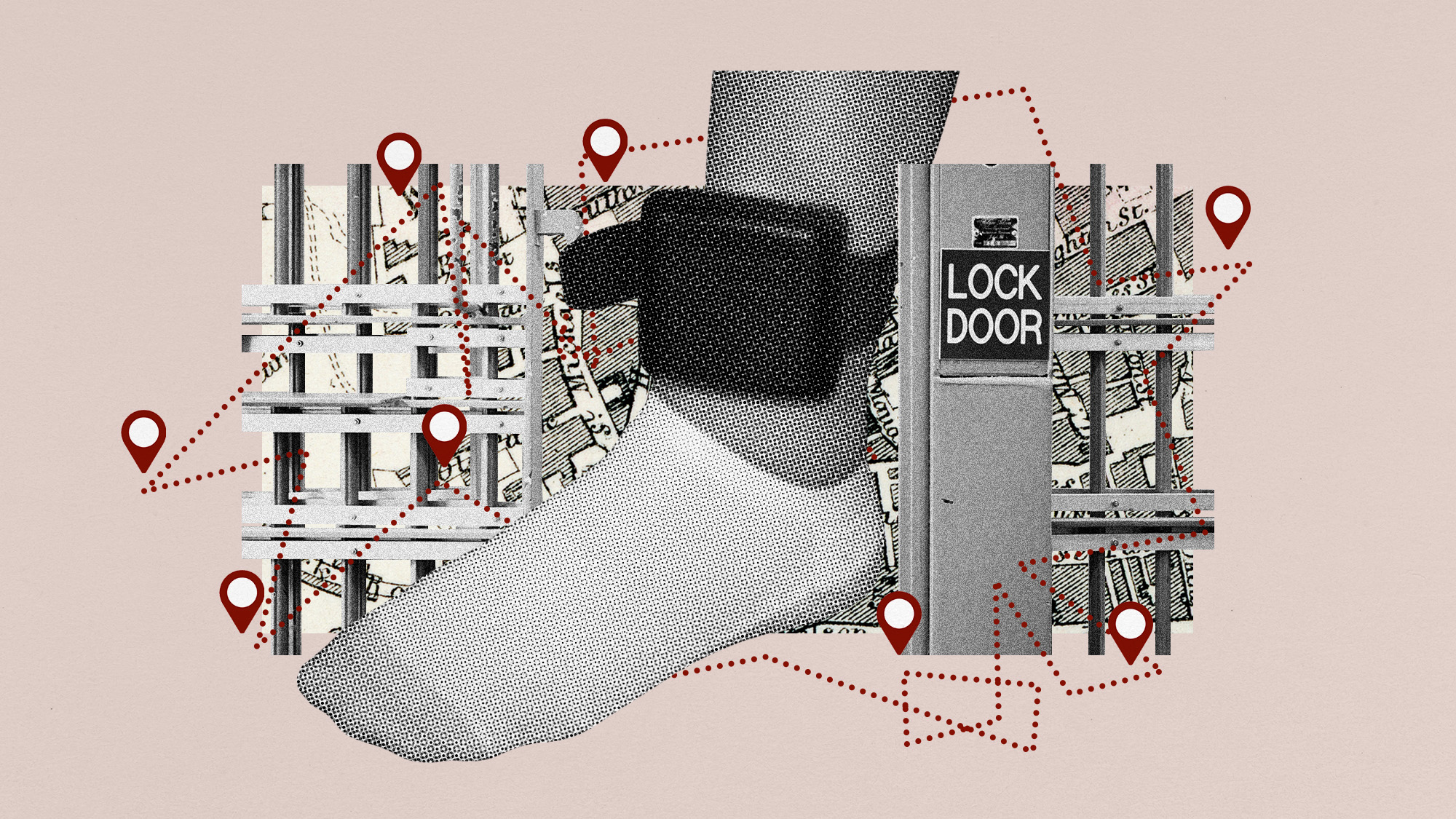'Virtual prisons': how tech could let offenders serve time at home
New technology offers opportunities to address the jails crisis but does it 'miss the point'?

A free daily email with the biggest news stories of the day – and the best features from TheWeek.com
You are now subscribed
Your newsletter sign-up was successful
Nudge watches and alcohol sensors could replace "slopping out" and exercise yards as the authorities consider proposals to replace some jail sentences with house arrest, drawing on the latest technology to monitor offenders in their homes.
A new review, chaired by the former Conservative justice minister David Gauke, will consider ways to punish thousands more offenders within the community, turning their homes into "virtual prisons", said The Independent.
Nudge theory
With the problem of crumbling and overcrowded prisons growing, judges may be given the powers to hand down sentences that force offenders to stay at home, while being monitored by electronic tags. The review will examine the experiences of US states that use house arrest as an alternative to prison. Offenders are able to "earn income, maintain family and other relationships", and "attend probation appointments" and "substance abuse treatment" while being monitored via an electronic bracelet, said The Guardian.
The Week
Escape your echo chamber. Get the facts behind the news, plus analysis from multiple perspectives.

Sign up for The Week's Free Newsletters
From our morning news briefing to a weekly Good News Newsletter, get the best of The Week delivered directly to your inbox.
From our morning news briefing to a weekly Good News Newsletter, get the best of The Week delivered directly to your inbox.
As part of the "robust community alternatives to prison", said The Times, "nudge watches", which are already used for those on probation, could become part of the virtual prison experience. Offenders would be sent messages reminding them to turn up to appointments or comply with other restrictions imposed as conditions of their release. Nudge technology could help offenders with "chaotic" lives, a senior prison source told The Guardian. "They're not things that restrict your liberty", added the source, but they are "very helpful" in terms of "behaviour compliance and nudge compliance". A patch measuring the alcohol content of sweat on the skin could also be used, sending regular reports on an offender's alcohol level through an ankle or wrist bracelet.
Sensor technology would help authorities can track offenders' movements, said the justice secretary, Shabana Mahmood. AI technology could be used to flag suspicious behaviour – "like a convicted burglar driving around a neighbourhood at the same time every day", she said, which could be a "really effective" method that helps create a "prison environment, but outside of prison".
'Undoubtedly a mess'
Demand for prison places is rising fast and currently stands at a rate of about 4,500 prisoners each year at a time when the government has admitted that overcrowding has already pushed jails to "the point of collapse". Meanwhile, an emergency plan announced by the government in the summer aims to free 5,500 prison spaces across England and Wales by releasing inmates early.
"It is, undoubtedly, a mess", said The Independent, but the house arrest proposal "appears to miss a crucial point". Mike Nellis, professor of criminal and community justice at the University of Strathclyde, told the paper that "we're in a position right now where we can’t even find accommodation for people when they're released from prison": sometimes "we're giving them tents". If "we can't even do the basics" the idea that hi-tech gadgets like smart watches are a "significant contribution" to solving the prison crisis is "ridiculous". "We've got to produce something that’s equal to the challenges the service is facing."
A free daily email with the biggest news stories of the day – and the best features from TheWeek.com
Chas Newkey-Burden has been part of The Week Digital team for more than a decade and a journalist for 25 years, starting out on the irreverent football weekly 90 Minutes, before moving to lifestyle magazines Loaded and Attitude. He was a columnist for The Big Issue and landed a world exclusive with David Beckham that became the weekly magazine’s bestselling issue. He now writes regularly for The Guardian, The Telegraph, The Independent, Metro, FourFourTwo and the i new site. He is also the author of a number of non-fiction books.
-
 The environmental cost of GLP-1s
The environmental cost of GLP-1sThe explainer Producing the drugs is a dirty process
-
 Greenland’s capital becomes ground zero for the country’s diplomatic straits
Greenland’s capital becomes ground zero for the country’s diplomatic straitsIN THE SPOTLIGHT A flurry of new consular activity in Nuuk shows how important Greenland has become to Europeans’ anxiety about American imperialism
-
 ‘This is something that happens all too often’
‘This is something that happens all too often’Instant Opinion Opinion, comment and editorials of the day
-
 Mexico’s forced disappearances
Mexico’s forced disappearancesUnder the Radar 130,000 people missing as 20-year war on drugs leaves ‘the country’s landscape ever more blood-soaked’
-
 Dash: the UK's 'flawed' domestic violence tool
Dash: the UK's 'flawed' domestic violence toolThe Explainer Risk-assessment checklist relied on by police and social services deemed unfit for frontline use
-
 Illicit mercury is poisoning the Amazon
Illicit mercury is poisoning the AmazonUnder the Radar 'Essential' to illegal gold mining, toxic mercury is being trafficked across Latin America, 'fuelling violence' and 'environmental devastation'
-
 Thailand is rolling back on its legal cannabis empire
Thailand is rolling back on its legal cannabis empireUnder the Radar Government restricts cannabis use to medical purposes only and threatens to re-criminalise altogether, sparking fears for the $1 billion industry
-
 Insects and sewer water: the alleged conditions at 'Alligator Alcatraz'
Insects and sewer water: the alleged conditions at 'Alligator Alcatraz'The Explainer Hundreds of immigrants with no criminal charges in the United States are being held at the Florida facility
-
 7 charged in LA for 'largest jewelry heist in US history'
7 charged in LA for 'largest jewelry heist in US history'Speed Read The purported thieves stole an estimated $100 million worth of items
-
 Why Rikers Island will no longer be under New York City's control
Why Rikers Island will no longer be under New York City's controlThe Explainer A 'remediation manager' has been appointed to run the infamous jail
-
 Narco subs are helping to fuel a global cocaine surge
Narco subs are helping to fuel a global cocaine surgeThe Explainer Drug smugglers are increasingly relying on underwater travel to hide from law enforcement